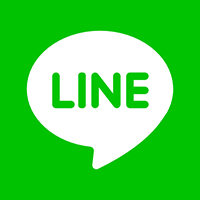Court Decision on Four Cosmetics Companies’ Infringement of Unilever’s Trade Dress
Date: 31 May 2024
【Volume 136】
Unilever PLC (hereinafter “Unilever”), one of the world’s largest consumer goods companies in the United Kingdom, has launched “TIGI Bed Head Small Talk Hair Thickening Cream” (hereinafter referred to as “TIGI Cream”) in UK in 2002, and later entered the Chinese market. However, Unilever found that Chinese company Chengdu Eisansun Trading Ltd., Chengdu Weimei Cosmetics Ltd. and Chengdu Yanli Cosmetics Ltd., had commissioned Guangzhou Gaojue Cosmetics Ltd. (hereinafter together referred to as “Defendants”) to manufacture “Eisansun Hair Thickening Cream” and sold it through online retailers including Tmall and Jingdong without Unilever’s permission. The packaging of “Eisansun Hair Thickening Cream” highly resembled the packaging and decoration of Unilever’s “TIGI Cream”. Both of which come in a purple spherical container with a green pump head. The act of the four companies had constituted unfair competition; hence, Unilever authorized Unilever Services (Hefei) Ltd. to file a civil lawsuit with the court to stop the infringing act and claim monetary damages.
| Unilever’s “TIGI Bed Head Small Talk Hair Thickening Cream” | Eisansun’s “Eisansun Hair Thickening Cream” |
|---|---|
|
|
|
Chengdu Intermediate People's Court in China deemed that the special packaging design / trade dress of Unilever’s “TIGI Cream”, which features “a purple spherical container with a green pump head”, is highly distinctive. Moreover, with high sales volume, high gross sales, wide-ranging sales territories, and a large number of reviews, the product has been sold through various sales channels and has been promoted, reported, and recommended by consumers and mass media. Having being used for a long time, “TIGI Cream” has earned a greater reputation among the public and its packaging has also become more influential, which allows the public to identify and distinguish its source through its packaging. Given that the overall appearance of the product produced and sold by the Defendants was nearly the same as that of “TIGI Cream”, which easily led consumers to falsely believe that the product was produced by Unilever or had some kind of relationship with Unilever, it constituted unfair competition. Accordingly, the court ordered immediate termination of the Defendants’ infringement and fined the Defendants CNY 3.1414 million in compensatory damages.
According to Paragraph 2, Article 6 of the Unfair competition law of the People’s Republic of China, “using, without authorization, any mark identical or similar to the name, packaging or decoration, etc. of another business entity’s goods which has certain reputation” constitutes unfair competition. However, it should be noted that the requirements for claiming “the packaging and decoration of a good has certain reputation” is quite strict, and it is necessary to provide evidence of its popularity. Only a small number of packaging and decoration of goods could obtain such protection. This case was a successful and representative example because Unilever submitted sufficient evidence to demonstrate that there is “considerable influence” in the distinctiveness and popularity of its product. Regarding the development of IP policies relating to the packaging of goods, it is suggested that applicants seek multiple protections through applying for a design patent, a trademark, and a copyright at the same time to secure the best chance of success for enforcement in the future.






